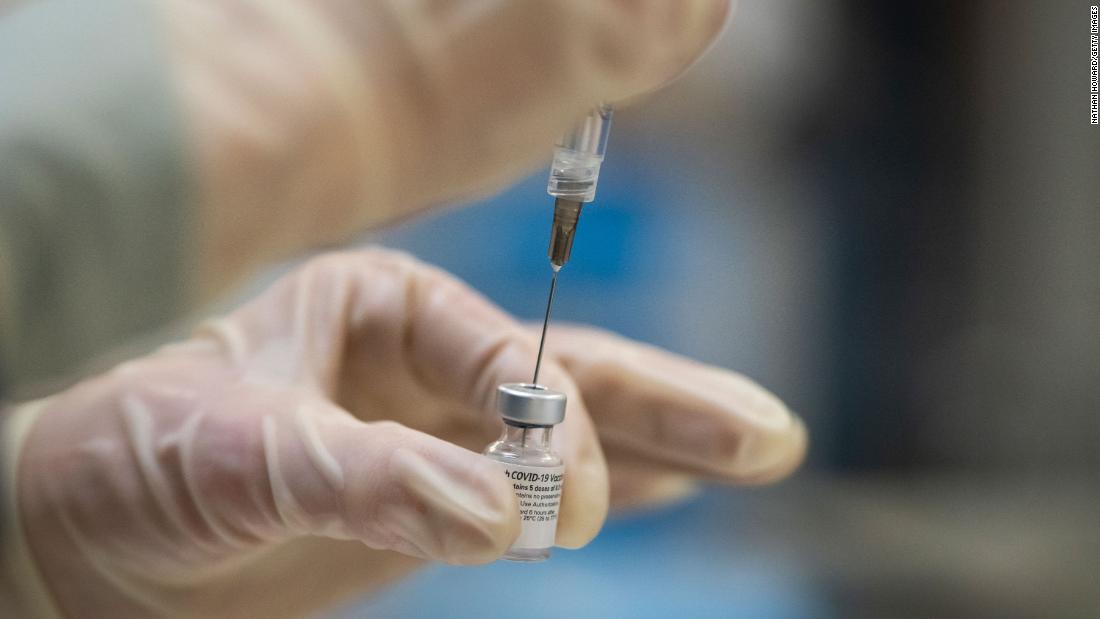“It has been invoked and means that our work is underway with companies to ensure that we are accelerating the manufacture of materials to ensure that we can get 100 million shots in the arms of Americans,” said White House press secretary Jen Psaki, last week.
The 1950 law gives the government more control during emergencies to target industrial production.
The Federal Emergency Management Agency describes the act as “the primary source of presidential officials to streamline and expand the supply of resources from the United States’ industrial base to support military, energy, space and homeland security programs.”
“The authorities can be used across the federal government to shape the domestic industrial base so that, when requested, it is able to supply materials and goods essential for national defense,” says the report.
The act is divided into three main sections:
- Priorities and allocations, which allow the president to require companies to accept and prioritize contracts for services and materials deemed necessary to help the United States’ national defense.
- Expansion of productive capacity and supply, which gives the president the authority to create incentives for the industry to produce essential materials.
- General Provisions, which establishes broad governmental authority to enter into agreements with private industry, to prevent foreign corporate mergers that threaten national security and to create a voluntary bloc of industry executives who could be called upon to serve the public.
Has DPA been used before?
The priority part of the DPA is regularly used by the Department of Defense to “acquire critical military capabilities” and the Department of Homeland Security for disaster response and preparedness. What has not been used since the Cold War is the allocation provision.
What could Biden do with the law?
The authorities that the president has under the DPA are vast and varied.
- Biden may require companies to “prioritize and accept government contracts”. The president can also control the distribution of how these products reach the people who need them. This means that if a company that makes syringes was about to ship 100 to Italy, that supply chain could be interrupted, for example, if Biden determines that those supplies need to stay in the USA. This allocation authority, according to the Congressional Research Service, has not been invoked since the 1970s, when it was used to promote energy development during the Cold War. But more commonly, the Department of Defense and sometimes FEMA use the DPA prioritization clause to ensure that government contracts are prioritized when it comes to protecting national defense or ensuring that the country can respond to natural disasters.
- Another section of the DPA would allow Biden to “provide economic incentives” to ensure that the United States has the resources and products it needs to deal with Covid-19. This could include things like ensuring that the United States buys the surplus bottles that a company makes in the next six months. It may also include providing loans to companies or loan guarantees.
- The president can also establish “voluntary agreements” with industries, similar to agreements between some vaccine manufacturers and manufacturers worldwide. The president can also enter into these agreements. And, Biden could “block proposed or pending mergers or acquisitions of foreign companies” if they threaten national security or the production of goods we need now.
We don’t know which of these Biden would use now. These authorities are used in the context of national security, but it is important to note that, although DPA authorities apply to public health emergencies, before the coronavirus outbreak, DPA was not used for a public health crisis.
Does Congress have oversight?
Congress has some oversight. If the president wants to invoke wage and price controls, that must be accompanied by a joint Congressional resolution, according to the Congressional Research Service.
Congress must also authorize loans and loan guarantees that cost more than $ 50 million. The Congressional Research Service is clear that Biden would have to let the relevant committees, such as Banking and Finance, know what his plan was and allow a 30-day comment period. It is not clear whether there are exceptions to an emergency.
It is also unclear – and perhaps untested – whether during a national emergency Congressional oversight would be waived. But Congress may still have a role here.
CNN’s Priscilla Alvarez, Sara Murray and Lauren Fox contributed to this report.
